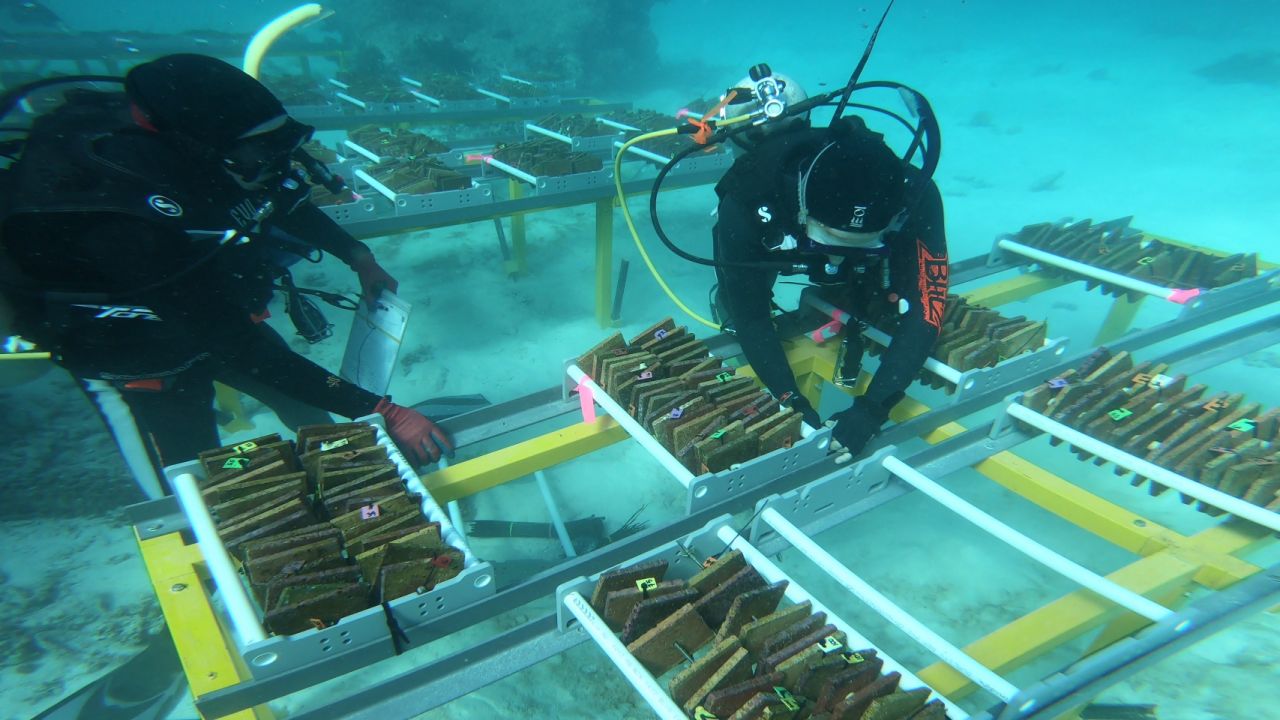Media Release ·
Next generation corals undergo first field tests on the Great Barrier Reef

Hundreds of juvenile corals bred at the Australian Institute of Marine Science (AIMS) have survived being transplanted on the Great Barrier Reef, in a promising early test to help corals increase their resilience to marine heatwaves.
The trial aims to show young coral offspring produced from mixing corals from warm northern reefs, with cooler central corals, can survive in cooler environments.
This is the first test to assess the feasibility of the technique called Assisted Gene Flow at this larger scale on the Great Barrier Reef.
The seven-month-old corals have one parent from the warmer northern reaches of the Reef and the other from the cooler central Reef.
“Last year we collected corals from the far north of the Great Barrier Reef that survived previous heat waves, and we flew them nearly 1000km to AIMS in Townsville,” Dr Quigley said.
“We have cross-fertilised them with corals from the middle of the Reef to see if the heat tolerance is passed on.”
Dr Line Bay, who leads AIMS’ research into reef recovery, adaptation and restoration, said Assisted Gene Flow, was helping nature to do what it does naturally, and is one of several techniques being developed at AIMS to help coral survive higher future ocean temperatures in coming decades.
“When corals get too hot they are damaged and bleach, and this can lead to extensive mortality as we have recently seen on the Great Barrier Reef,” Dr Bay said.
“If corals are to persist into the future, they have to cope with these increasing temperatures, and because of the rate of warming, they will have to become more tolerant fast.
“We are focussed on developing new solutions for managing our coral reefs in a warming future.”
The National Sea Simulator is the world’s most advanced research aquarium.
These crosses were then settled onto terracotta tiles and moved to a site on the Great Barrier Reef, in March.
This first expedition to check on these coral juveniles has just returned, and researchers are analysing the results.
“We found many of the warm-adapted corals have survived the now quite cool waters of the central Reef,” Dr Quigley said.
“This early result supports further testing of Assisted Gene Flow as a management action tool for corals in a warming future.”
The field tests will add to results from experiments in the National Sea Simulator which showed these juvenile corals with at least one parent from the far northern Great Barrier Reef, are significantly more likely to survive high temperatures.
AIMS researchers plan to return to the test site in October to check in again on how the corals are growing and surviving.
This research is partly funded by the partnership between the Australian Government’s Reef Trust and the Great Barrier Reef Foundation.




